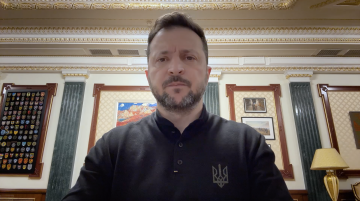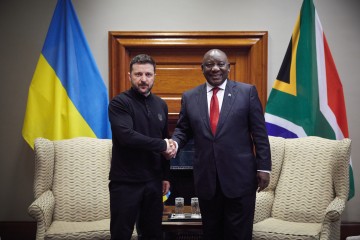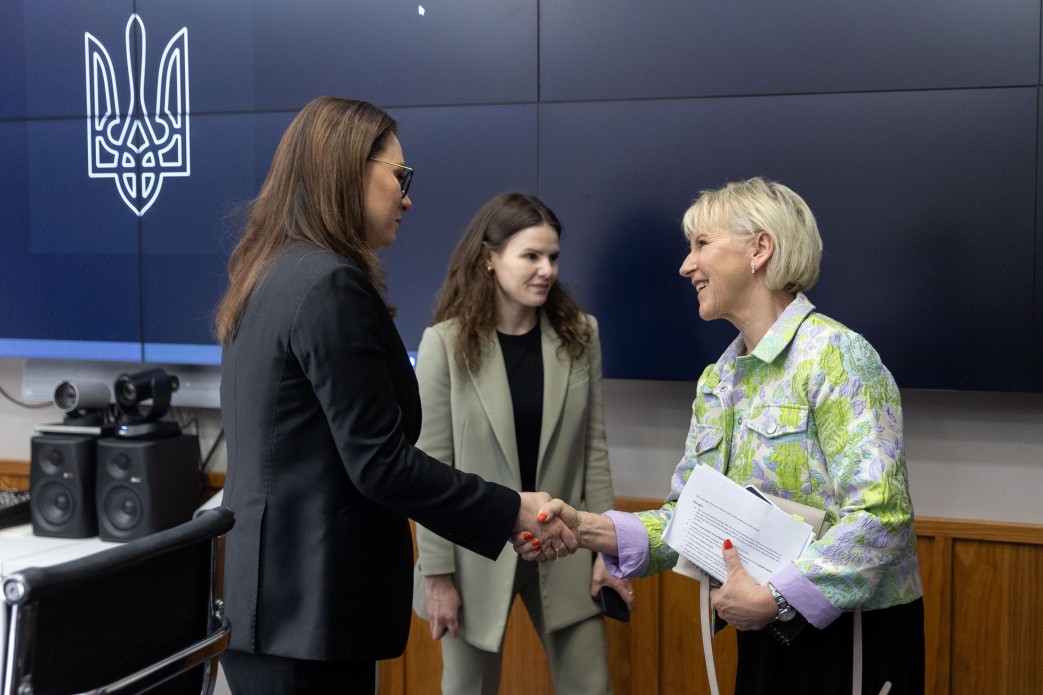The Office of the President of Ukraine hosted a briefing for members of the International Working Group on the Environmental Consequences of War dedicated to the situation in Ukraine, Russia's war crimes and the consequences of blowing up the Kakhovka hydroelectric power plant.
The meeting was attended by Vice-President of the European Parliament Heidi Hautala, former European Commissioner for the Environment and former Swedish Foreign Minister Margot Wallström, President of Ireland in 1990-1997 Mary Robinson, environmental activist Greta Thunberg, Senior Advisor at the European Institute of Peace, Head of the CMI (The Crisis Management Initiative) Eurasia Program Roxana Cristescu.
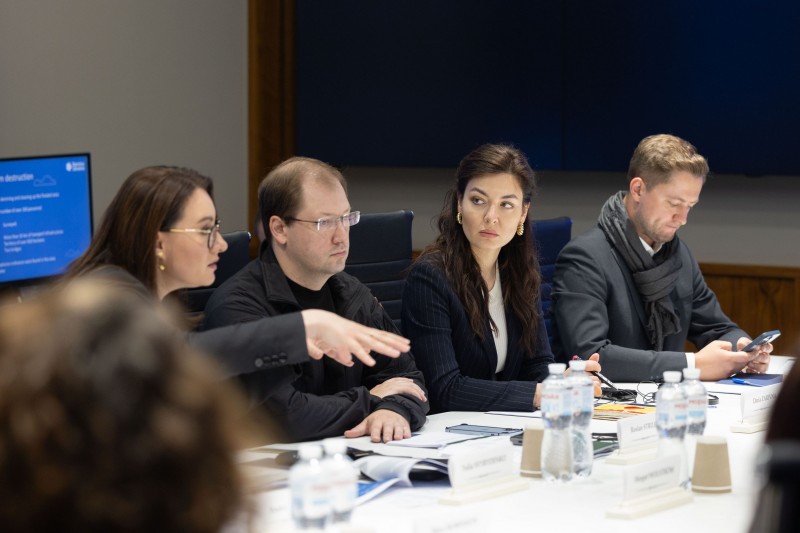
The briefing was held by First Deputy Prime Minister and Minister of Economy Yulia Svyrydenko, Deputy Head of the Presidential Office Rostyslav Shurma, Prosecutor General Andriy Kostin, Minister of Environmental Protection and Natural Resources Ruslan Strilets, Minister of Energy Herman Halushchenko, Advisors to the Head of the Presidential Office Daria Zarivna and Oleksandr Bevz.
Yulia Svyrydenko spoke about the consequences of the war in Ukraine launched by Russia. According to her, more than 100 thousand square kilometers of territory, including agricultural land, have been mined in our country, which negatively affects the agricultural sector and, as a result, worsens the food situation in the world. The First Deputy Prime Minister emphasized that Ukraine needs to increase its humanitarian demining capacity, including a large number of relevant equipment and sappers.
"Ukraine is now the most mine-contaminated country in the world. First of all, we need to enhance the state's demining capabilities. Three thousand sappers are not enough, we need to increase their number," Yulia Svyrydenko is convinced.
She emphasized the importance of developing a strategy for demining the territories.
According to Rostyslav Shurma, the Russian occupiers' blowing up of the Kakhovka hydroelectric power plant dam caused significant damage to Ukraine's agriculture, energy sector, housing, transport infrastructure and the environment in general. According to him, the calculation of direct losses from this disaster is ongoing, and the amount is currently about $2 billion.
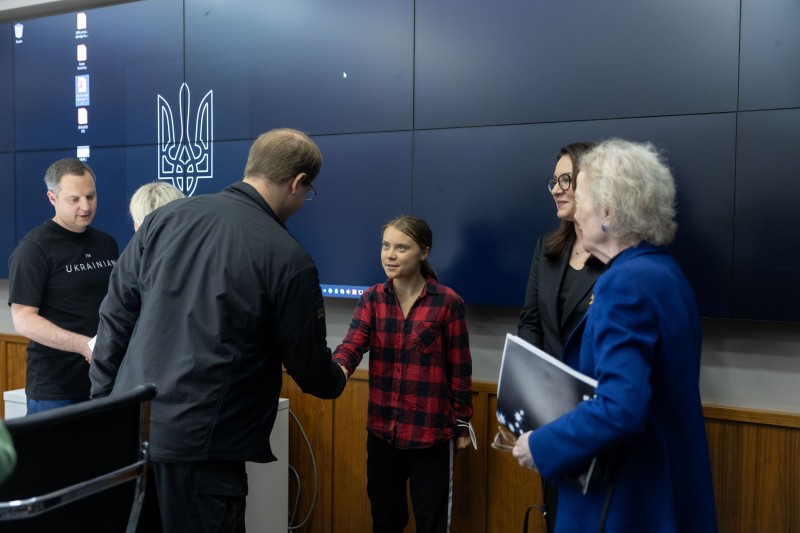
"We are talking about significant economic and environmental damage. Flora, fauna, agriculture, forestry, national landscape parks. This is a value that is important for the whole world, for nature," added the Deputy Head of the Presidential Office.
Rostyslav Shurma also noted that people living in the areas affected by the Kakhovka HPP disaster need humanitarian support.
He said that the possibility of creating a separate fund in the medium term is being considered to raise funds for the restoration of HPP, power generation, agriculture, irrigation systems, and the region's flora and fauna.
Minister of Environmental Protection and Natural Resources Ruslan Strilets noted that 30% of Europe's biodiversity is concentrated in Ukraine. According to him, the Ministry of Environmental Protection has prepared a methodology for assessing the damage caused to Ukraine's natural resources by Russian aggression as part of its efforts to bring Russia to justice. More than 240 cases of ecocide have been registered.
"We see that our territories are being targeted by missiles, shells and mines that destroy our valuable resources. This harms our ability to fight climate change. We don't want our land to become a training ground for Russian tanks," said Ruslan Strilets.
He spoke about the work of the EcoThreat web resource and mobile application, which uses digital technologies to determine the degree of environmental damage even in the temporarily occupied territories.
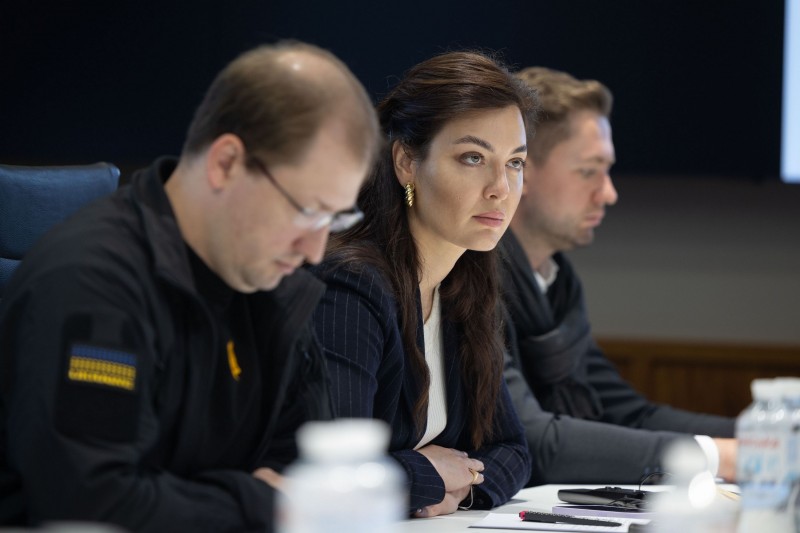
"I am from Kherson, and the catastrophe that happened there touched the hearts of all Ukrainians. It is very painful to see the area where you lived, where several generations of your family lived, being destroyed. My grandmother's house was destroyed by a missile, my parents' house was flooded, my relatives' house was blown apart by a missile, a piece of which fell on my little sister's bed. Many Ukrainians can tell similar stories," said Daria Zarivna, Advisor to the Head of the Presidential Office.
The Minister of Energy of Ukraine noted that the challenges of the war have revealed weaknesses in the Ukrainian energy system and demonstrated the need to decentralize energy distribution. The fastest way to achieve this, according to Mr. Halushchenko, is to switch to renewable energy sources.
"The Russians destroyed more than ten mines, and this accelerated the transition to green energy," he stated.
The Minister reminded that Ukraine has approved a new energy strategy aimed at eliminating the use of coal by 2035. Our country sees the potential to use solar and wind energy. In particular, according to him, after winning the war and regaining all its territories, Ukraine will have a significant potential for wind energy development on the coasts of the Black and Azov Seas.
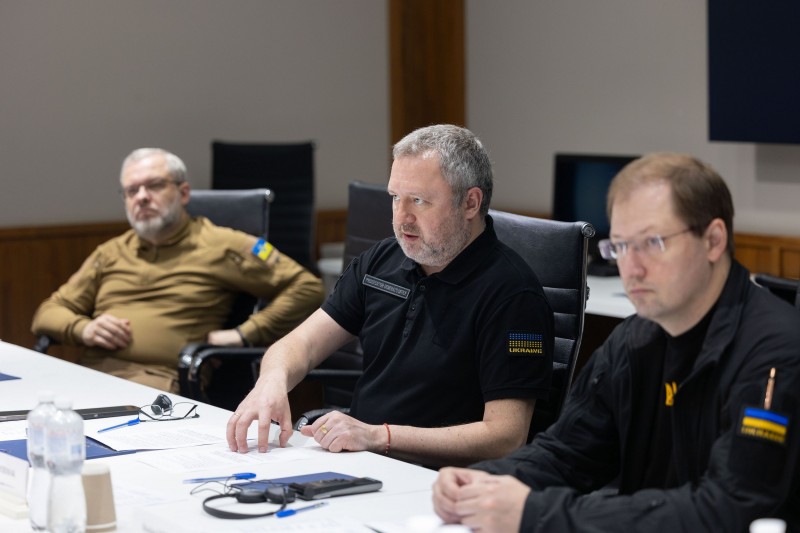
Prosecutor General Andriy Kostin spoke about the work being done by the Prosecutor's Office to bring Russia to justice for environmental crimes. He noted that in such cases, one of the most difficult issues is determining the amount of damage to be compensated, as there are different methodologies for assessing damage.
That is why the Prosecutor's Office is engaging all available resources to determine the cost of damages and establish a link between the act of aggression and the environmental crime.
Andriy Kostin invited the members of the International Working Group to join the collection of evidence and determination of the extent of damage caused by Russia's environmental crimes on the territory of Ukraine.


